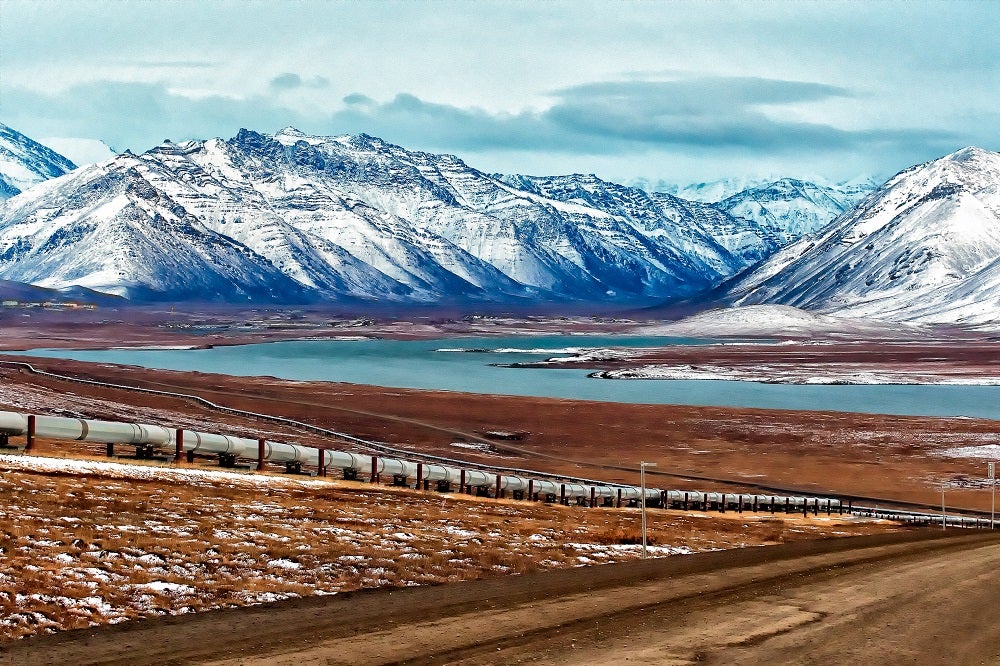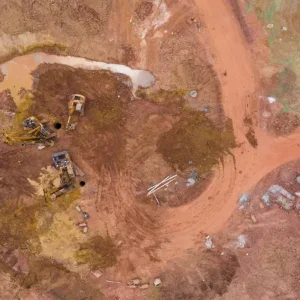
Sales of oil drilling leases in Alaska will go ahead in early January, as the Trump administration accelerates its efforts to open the region to producers during the president’s final days in office.
A notice was published today (7 December) in the Federal Register, confirming the US Bureau of Land Management (BLM) will hold the auction for oil and gas plots in the Arctic National Wildlife Refuge (ANWR) on 6 January.
It requests all sealed bids to be submitted by 4pm Alaska standard time on 31 December ahead of the sale a week later, which will be livestreamed.
The announcement follows a “call for nominations and comments” less than a month ago, in which companies were invited to express their interest in bidding for 32 tracts covering 1.6 million acres of the ANWR’s Coastal Plain.
The speed of the process reflects the urgency with which President Trump is attempting to push through the sale, and make oil exploration in the Alaska refuge one of his parting achievements before president-elect Joe Biden – who opposes the move – takes office on 20 January.
Race to beat the clock
The Alaskan wilderness has long been a target for oil producers, but attempts the open it up have been thwarted for decades by environmental opposition.
Estimates suggest the region sits on top of around 11.8 billion barrels of recoverable reserves, although seismic assessments have not been carried out since the 1980s.
President Trump succeeded in overcoming these challenges in 2017, when Republicans voted to approve the lease sale as part of new tax legislation.
“Congress directed us to hold lease sales in the ANWR Coastal Plain, and we have taken a significant step in announcing the first sale in advance of the December 2021 deadline set by law,” said BLM Alaska state director Chad Padgett.
“Oil and gas from the Coastal Plain is an important resource for meeting our nation’s long-term energy demands, and will help create jobs and economic opportunities.”
While lease auctions are typically followed by a months-long review process, a fast-tracking of these regulatory approvals could feasibly formalise the sales ahead of the presidential inauguration just two weeks later.
That would make it more difficult for Biden – who has said he will ban any drilling in the Alaska refuge – to reverse the process once he takes office.
Adam Kolton, executive director of the Alaska Wilderness League, a campaign group, described the lease sale as “yet another dangerous political favour that lacks broad public support or legal credibility”.
“The [Trump] administration is simply rushing to sell off one of the wildest places left on earth for pennies on the dollar before president-elect Biden takes office in January,” he added.
Uncertainty over industry interest in Alaska oil leases
While Alaska has been a target of oil producers for many years, it is unclear how much appetite there will be for investing in leases in this challenging region at a time when the industry is undergoing big structural shifts.
The decimation of fuel demand during the coronavirus pandemic has slashed benchmark crude prices, and forced companies to cut costs, write down assets and scale back production operations in favour of the most low-risks projects.
Embarking on an expensive, long-term and logistically-challenging move into the ANWR may be considered an unwise strategic decision in this context, particularly since the now-decades-old resource assessments will need to be updated.
“The recoverable reserves from within the ANWR will require additional exploration and appraisal, which, in the current investment climate, is an expenditure few operators can afford,” said Adrian Lara, a senior oil and gas analyst at research firm GlobalData.
“In the event of successful discoveries, there is also the issue of the new infrastructure needed for development. This is in a region where weather conditions provide only a few months for an optimal work environment and where the cost of projects increases as the weather worsens.”
Rystad Energy, an analysis group, recently suggested that while global oil-exploration activities are expected to remain resilient despite the pandemic, strategies will be scrutinised more closely than ever before, and “only the [projects] with the highest chance of success will see a spinning drillbit”.
“Companies will be less willing to drill high-risk wells in environmentally-sensitive frontier areas, both for financial and environmental reasons,” the group added.
Mounting pressure on energy firms to respond to climate change adds an extra layer of complexity, with investors increasingly unwilling to back carbon-intensive projects and long-term oil demand expected to decline as more countries step up efforts to decarbonise by mid-century.
Michael Brune, executive director of the Sierra Club, an environmental organisation, warned companies participating in the lease sale would be “bidding on enormous legal and financial uncertainty, not to mention a massive public backlash”.
Kolton added: “Arctic refuge drilling makes zero sense in today’s reality of high oil-market volatility and with every major US bank and many international banks unwilling to invest in risky, expensive Arctic oil projects.”






